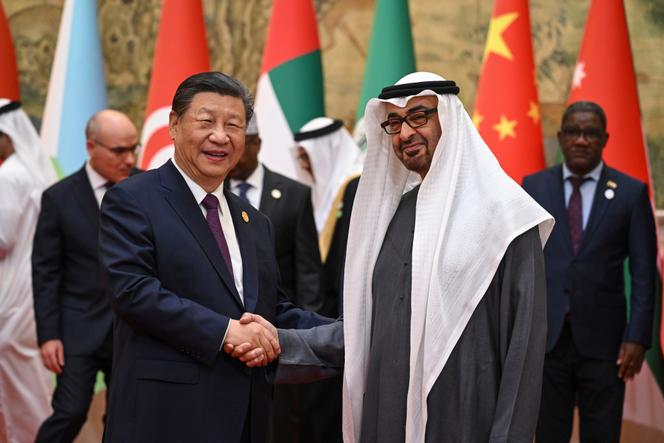


Camille Lons is deputy head of the Paris office of the European Council on Foreign Relations (ECFR) and a researcher specializing in the Gulf states. She looks at China's diplomatic and economic involvement in the Middle East, on the same turf as its major rival, the United States.
China's mediation between Iran and Saudi Arabia marked a turning point. China had already offered to be a mediator in the Israeli-Palestinian conflict in the past, but without really being brought in. This time, the initiative came from countries in the region, in particular Saudi Arabia, which saw it as a political advantage vis-à-vis the United States, while at the same time forcing China to be a little more accountable for its relationship with Iran. But while in public, the Chinese emphasize their role as mediators, they are more modest in private. They say that Beijing has played only a facilitating role. For example, China has not committed to forcing Iran to do anything in the event of a conflict.
Since October 7, 2023, there has been a return to the basics of Chinese diplomacy. China has built up good relations with many countries in the region, which are sometimes on opposing sides. It has no interest in meddling in disputes between these countries. What's more, for the Chinese, the conflict in the Near East stems from the mistakes of the West, particularly the Americans, who have interfered too much in local politics. So why repeat this mistake? The October 7 crisis fed Beijing's narrative of Western decline and double standards. China has every interest in letting the US get tangled up in this war.
China is often described as a player with an interest in stability in this strategic region. This is true, but it is also in China's interest for there to be a slight degree of instability when this comes at an enormous cost to Western countries, particularly the US, and much less to itself. But this remains a short-termist vision and not a strategic one.
Partially. Not because of China itself, but rather because of the Gulf states themselves, which are highly dependent on the US for their security. These countries began very early on to adapt to the decline of American power in the region and the rise of other players, especially China. When the Belt and Road Initiative was launched, the Gulf was not necessarily a priority for China, but the countries of the region saw China as a key player, either because they are in need of infrastructure and reconstruction or because they are preparing for the post-oil era. The Gulf states have clearly made China one of their diplomatic priorities, some even appointing a very high-level special envoy responsible for relations with Beijing, whereas Chinese ambassadors in the Near East have no such hierarchical level.
You have 66.49% of this article left to read. The rest is for subscribers only.
